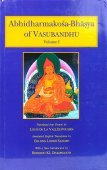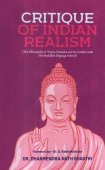Vaibhashika, Vaibhāṣika: 13 definitions
Introduction:
Vaibhashika means something in Buddhism, Pali, Hinduism, Sanskrit, Jainism, Prakrit. If you want to know the exact meaning, history, etymology or English translation of this term then check out the descriptions on this page. Add your comment or reference to a book if you want to contribute to this summary article.
The Sanskrit term Vaibhāṣika can be transliterated into English as Vaibhasika or Vaibhashika, using the IAST transliteration scheme (?).
In Hinduism
Vyakarana (Sanskrit grammar)
Source: Wikisource: A dictionary of Sanskrit grammarVaibhāṣika (वैभाषिक).—Optional, alternative; cf. वेति वैभाषिकः (veti vaibhāṣikaḥ) T. Pr.XXII. 7; see वैकल्पिक (vaikalpika).

Vyakarana (व्याकरण, vyākaraṇa) refers to Sanskrit grammar and represents one of the six additional sciences (vedanga) to be studied along with the Vedas. Vyakarana concerns itself with the rules of Sanskrit grammar and linguistic analysis in order to establish the correct context of words and sentences.
Shaivism (Shaiva philosophy)
Source: Brill: Śaivism and the Tantric Traditions (philosophy)Vaibhāṣika (वैभाषिक) refers to the “followers of Vibhāṣā”, according to the Īśvarapratyabhijñāvivṛtivimarśinī 2.133.—Accordingly, “Having thus refuted the external [object as it is] understood by the followers of Kaṇāda, [Utpaladeva now] refutes as well [the external object as it is] explained by the Vaibhāṣikas [i.e., vaibhāṣika-paribhāṣita] [in the sentence beginning with] ‘If, on the other hand’”.

Shaiva (शैव, śaiva) or Shaivism (śaivism) represents a tradition of Hinduism worshiping Shiva as the supreme being. Closely related to Shaktism, Shaiva literature includes a range of scriptures, including Tantras, while the root of this tradition may be traced back to the ancient Vedas.
In Buddhism
General definition (in Buddhism)
Source: Buddhist Door: GlossaryA Hinayana school of the reality of all phenomena. It is said that there were four branches of the Vaibhasika school, so called after the Vaibhasika Shastra. 1. Sthavirah 2. Sarvastivadah 3. Vatsiputriyah 4. Mahasanghika The school adhered primarily to two Sarvastivadin texts, the Jnanaprasthana and Abhidharmavibbasa shastra.
Source: WikiPedia: BuddhismThe Vaibhāṣika was an early Buddhist subschool formed by adherents of the Mahāvibhāṣa Śāstra, comprising the orthodox Kasmiri branch of the Sarvāstivāda school. The Vaibhāṣika-Sarvāstivāda, which had by far the most "comprehensive edifice of doctrinal systematics" of the early Buddhist schools, was widely influential in India and beyond.
Source: The Berzin Archives: BuddhismA Hinayana school of Indian Buddhism that does not assert reflexive awareness and does assert external phenomena; a subdivision of the Sarvastivada school of Hinayana. One of the four Indian Buddhist tenet systems studied by all traditions of Tibetan Buddhism.
In Jainism
Jain philosophy
Source: archive.org: Anekanta Jaya Pataka of Haribhadra SuriVaibhāṣika (वैभाषिक) refers to one of the four schools of Buddhism, as occurring in the Anekāntajayapatākā-prakaraṇa, a Śvetāmbara Jain philosophical work written by Haribhadra Sūri.—[Cf. Vol. I, P. 80, l 10]—Vaibhāṣika (or Āryasamitīya or Sarvāstivāda) is the name of one of the four schools of Buddhism, the other three being (i) Sautrāntika, (ii) Yogācāra or Vijñānavāda and (iii) Śūnyavāda or Mādhyamikavāda or Nairātmyavāda. The Vaibhāṣika school is so called as it attaches a very great importance to vibhāṣā, the commentary on Abhidhamma-piṭaka. It admits the existence of the past, present and future. It considers both knowledge (jñāna) and objects of knowledge (jñeya) as real. It believes in the existence of the external objects as perceived by the pratyakṣa-pramāṇa. In short, according to this school all is real, and that shows the significance of its designation as ‘Sarvāstivāda’. Further, this school believes that every thing lasts for four kṣaṇas origination, duration, old age and death Even ātman named as pudgala, lasts for four kṣaṇas. Further, knowledge is formless, and it originates along with the object from the same material.
The literature of the Vaibhāṣikas is available today in the Chinese language. It comprises Jñānaprasthānaśāstra (also known as Mahāvibhāṣā) of Kātyāyanīputra, Dharmaskandha of Sārīputra, Dhatukāya of Pūrṇa, Prajñaptiśāstra of Maudgalayana and Vijñānakāya of Devakṣema.
-
Languages of India and abroad
Sanskrit dictionary
Source: DDSA: The practical Sanskrit-English dictionaryVaibhāṣika (वैभाषिक).—a. (-kī f.) Optional.
Source: Cologne Digital Sanskrit Dictionaries: Edgerton Buddhist Hybrid Sanskrit DictionaryVaibhāṣika (वैभाषिक).—an adherent of the Buddhist school of this name: Mahāvyutpatti 5148.
Source: Cologne Digital Sanskrit Dictionaries: Shabda-Sagara Sanskrit-English DictionaryVaibhāṣika (वैभाषिक).—f. (-kī) Optional.
Source: Cologne Digital Sanskrit Dictionaries: Cappeller Sanskrit-English DictionaryVaibhāṣika (वैभाषिक).—[adjective] optional, arbitrary.
Source: Cologne Digital Sanskrit Dictionaries: Monier-Williams Sanskrit-English Dictionary1) Vaibhāṣika (वैभाषिक):—mfn. ([from] vi-bhāṣā) optional, [Taittirīya-prātiśākhya]
2) m. a follower of the Vibhāṣā, Name of a [particular] Buddhist school, [Monier-Williams’ Buddhism 157 etc.]
[Sanskrit to German]
Sanskrit, also spelled संस्कृतम् (saṃskṛtam), is an ancient language of India commonly seen as the grandmother of the Indo-European language family (even English!). Closely allied with Prakrit and Pali, Sanskrit is more exhaustive in both grammar and terms and has the most extensive collection of literature in the world, greatly surpassing its sister-languages Greek and Latin.
Kannada-English dictionary
Source: Alar: Kannada-English corpusVaibhāṣika (ವೈಭಾಷಿಕ):—
1) [noun] a particular Buddhist school.
2) [noun] (masc.) an adherent or follower of this school.
3) [noun] one of the old Indian atheistic philosophies.
Kannada is a Dravidian language (as opposed to the Indo-European language family) mainly spoken in the southwestern region of India.
See also (Relevant definitions)
Full-text (+10): Sarvastivada, Sautrantika, Madhyamaka, Yogacara, Paribhasita, Vaibhashya, Shunyavada, Vijnanavada, Vaipatikan, Aryasamitiya, Vasubhadra, Utsada, Sammatiya, Kanada, Samsthana, Mahayana, Sammata, Sarvastivadah, Abhayagirivasin, Madhyamikavada.
Relevant text
Search found 28 books and stories containing Vaibhashika, Vaibhāṣika, Vaibhasika; (plurals include: Vaibhashikas, Vaibhāṣikas, Vaibhasikas). You can also click to the full overview containing English textual excerpts. Below are direct links for the most relevant articles:
A comparative study between Buddhism and Nyaya (by Roberta Pamio)
3.2. Epistemology of Vaibhāṣika and Sautrāntika < [Chapter 2 - The Four Buddhist Schools of Philosophy]
2. The concept of Reality in the Four Buddhist Schools < [Chapter 2 - The Four Buddhist Schools of Philosophy]
3.1. The Vaibhāṣika and the Sautrāntika School (Introduction) < [Chapter 2 - The Four Buddhist Schools of Philosophy]
A History of Indian Philosophy Volume 1 (by Surendranath Dasgupta)
Part 10 - The Schools of Theravada Buddhism < [Chapter V - Buddhist Philosophy]
Part 19 - Brief survey of the evolution of Buddhist Thought < [Chapter V - Buddhist Philosophy]
Part 16 - The Doctrine of Momentariness < [Chapter V - Buddhist Philosophy]
Maha Prajnaparamita Sastra (by Gelongma Karma Migme Chödrön)
Appendix 1 - Comparison of asaṃskṛta in Buddhist literature < [Chapter XLVIII - The Eighteen Emptinesses]
Conditions note (2): The system in the Abhidharma of the Sarvāstivādins < [Part 1 - Understanding the Conditions (pratyaya)]
Part 13 - Non-existence of the donor < [Chapter XX - The Virtue of Generosity and Generosity of the Dharma]
Complete works of Swami Abhedananda (by Swami Prajnanananda)
Chapter 4 - Buddhist Councils And Buddhist Thoughts < [Discourse 7 - Thoughts on Sankhya Buddhism and Vedanta]
The Buddhist Philosophy of Universal Flux (by Satkari Mookerjee)
Chapter XVI - Nirvāṇa < [Part I - Metaphysics]
Chapter I - The Nature of Existence < [Part I - Metaphysics]
Chapter VII - The Doctrine of Apoha or the Import of Words < [Part I - Metaphysics]
Abhidharmakośa (by Leo M. Pruden)
Related products


